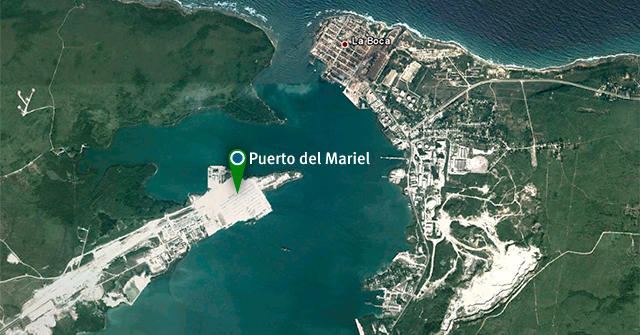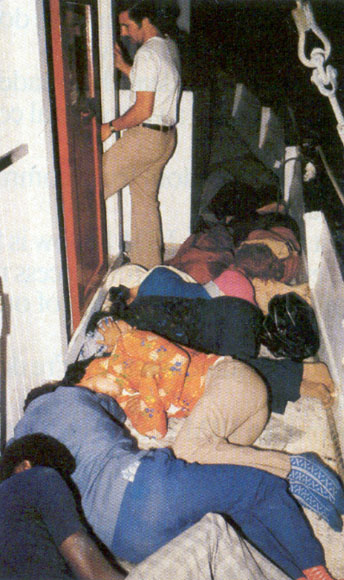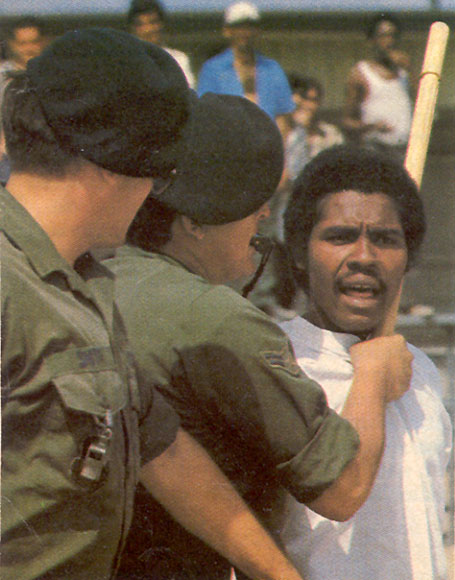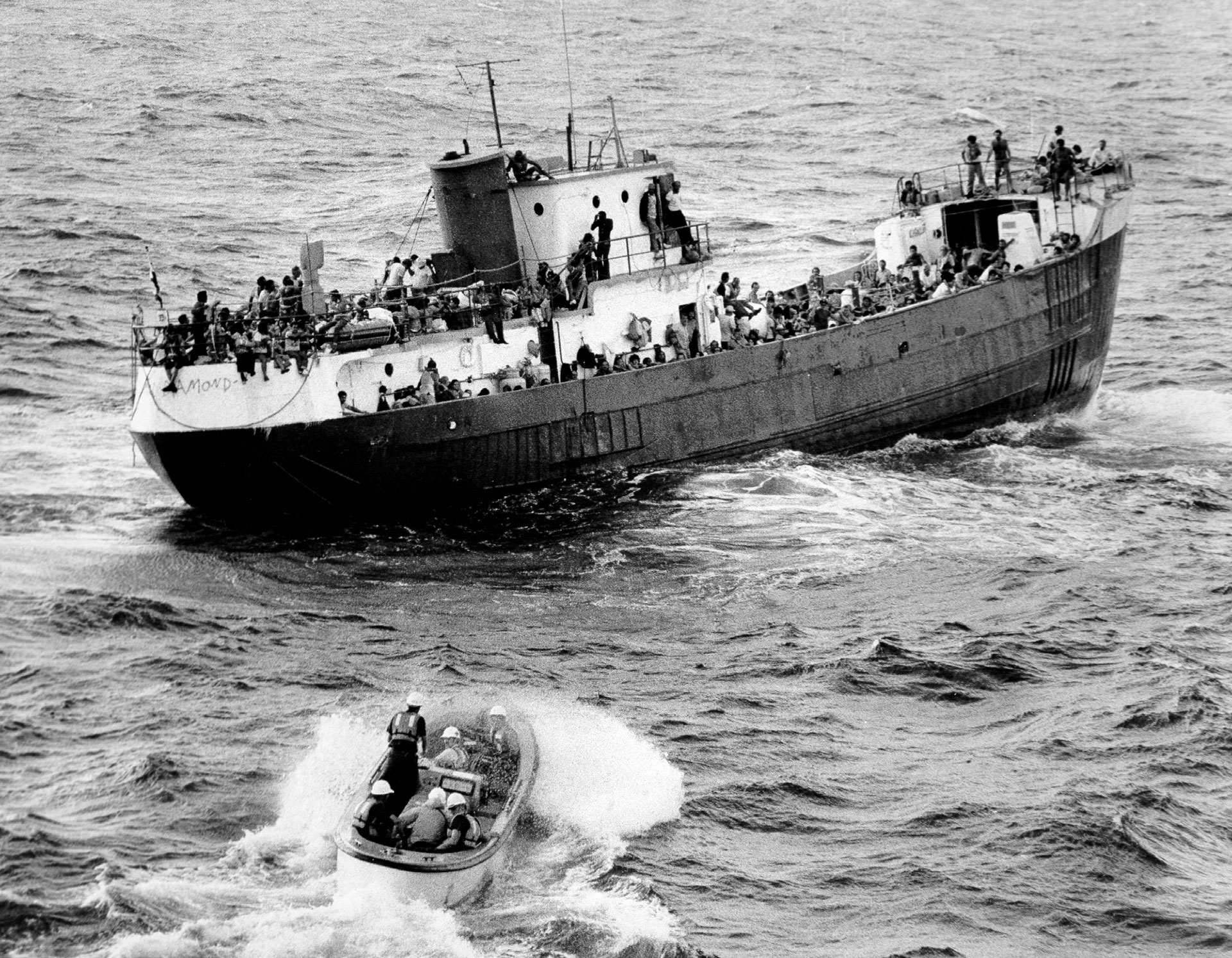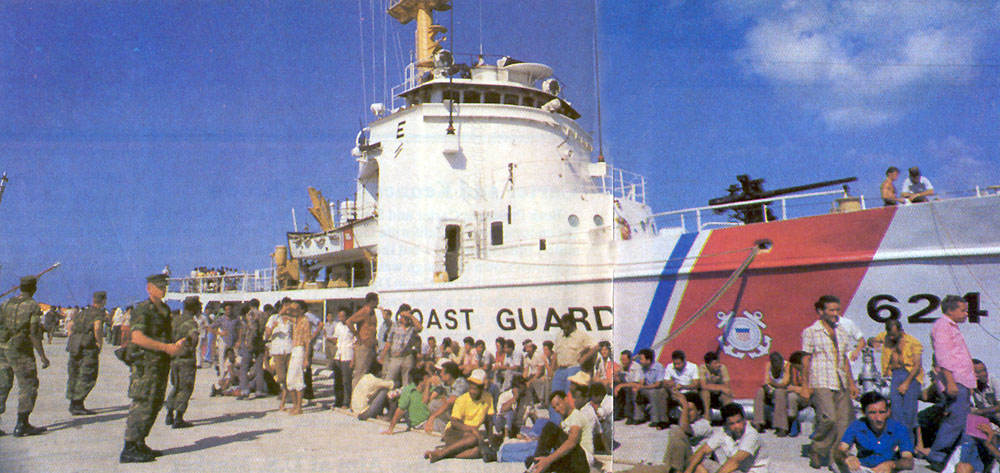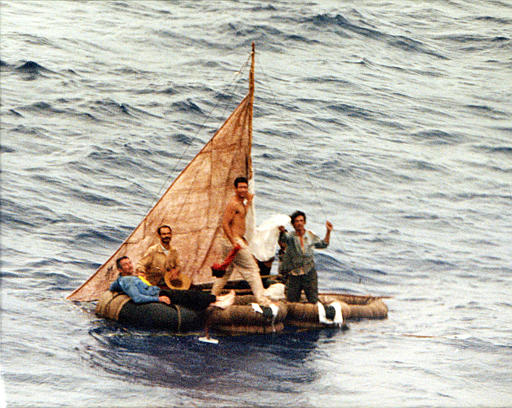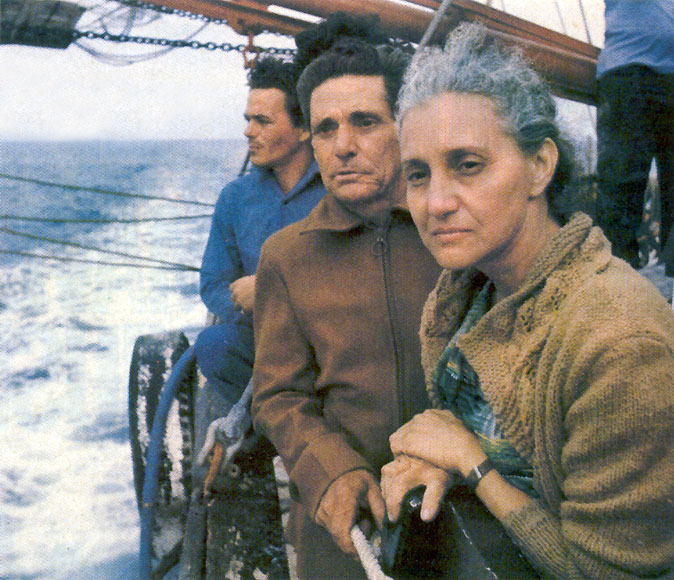From Key West to Mariel

(Boats docked in Key West during the Mariel boatlift, McDonald).
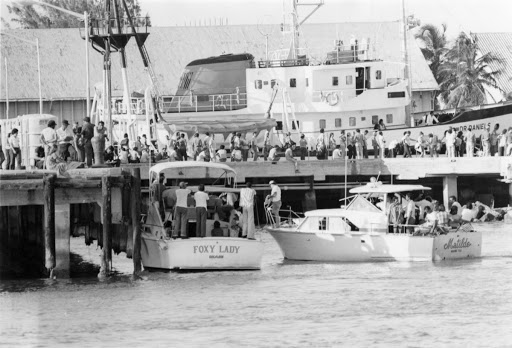
(Boats docked in Key West during the Mariel boatlift, Mcdonald).
There were two perspectives on how the Mariel migration occurred. When news came from Castro that the Cubans could be picked up at the Mariel port, many relatives rented boats to make the perilous 121 mile journey to pick up their family. Masses of people were Many Cuban families who resided in Florida spent thousands on sending charter out to save their families from Castro. "The boats that arrived to retrieve them—a scrappy, ad-hoc fleet of privately chartered American fishing boats, lobster boats, and shrimping trawlers of varying sizes and degrees of seaworthiness—earned the name the “Freedom Flotilla". The shrimpers were collecting Cubans and bringing them back. Shrimp captains explained that, "they thought they were doing a service for the good people of Cuba—they just weren’t able to do it for free" (atlasobscura).
"Ports in Key West, Opa-Locka and Miami opened makeshift immigration processing centers to accommodate the flood of Marielitos. As the southernmost point in Florida and shortest distance from Mariel, the small island town of Key West was especially overwhelmed by the wave of nearly 3,000 immigrants that arrived within the first 20 days of the exodus," (Florida memory).
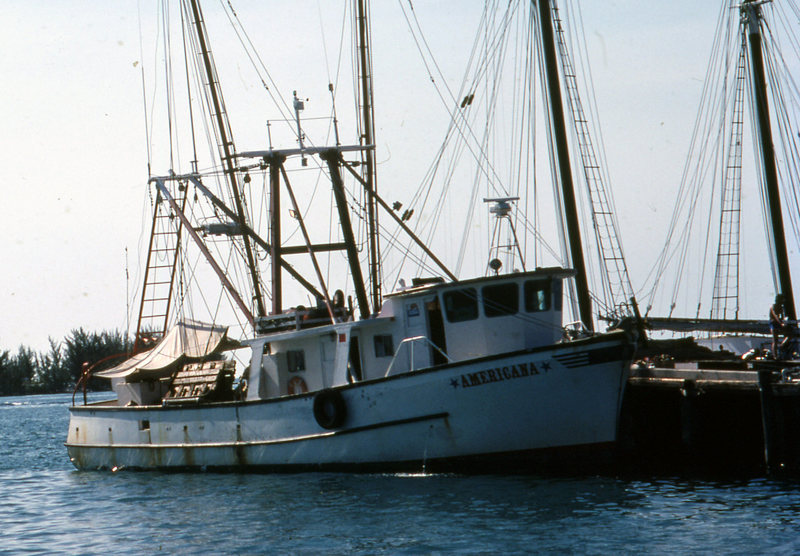
"The shrimp Boat Americana during the Mariel Boatlift" (Marva,"When Georgia Shrimpers Haul Refugees,"July 1980).




